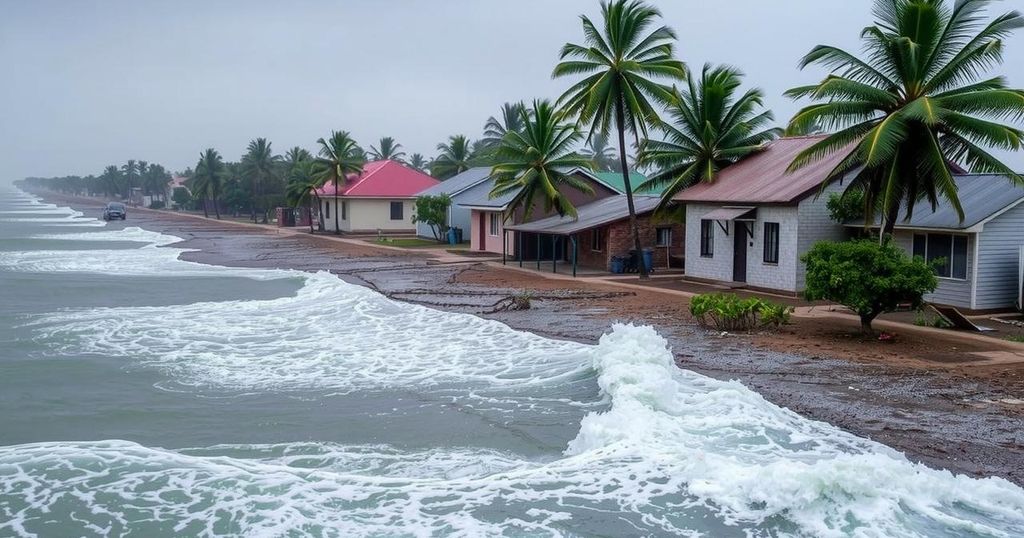Cyclone Chido has claimed 120 lives and injured 868 in northern Mozambique, with over 680,000 affected. Major damage has occurred in Cabo Delgado, Nampula, and Niassa, leading to the destruction of homes and schools. Authorities are responding with emergency shelters as agencies seek support for urgent relief efforts.
The devastating impact of Cyclone Chido, which struck northern Mozambique on December 15, has resulted in an alarming death toll that has now reached 120 individuals. The Mozambique national disaster relief agency reports that 868 individuals have sustained injuries, and over 680,000 people have been affected by the cyclone’s destructive path. Significant damage has been reported in the provinces of Cabo Delgado, Nampula, and Niassa, leading to more than 123,000 families displaced, with over 140,000 homes either partially or completely destroyed.
Additionally, the cyclone’s fury has led to the destruction of approximately 250 schools, 89 public buildings, and 52 health facilities, profoundly impacting nearly 110,000 students. In an effort to provide relief, two emergency shelters have been established, currently housing 1,349 displaced persons. The National Institute for Disaster Risk Management and Reduction (INGD) has drawn attention to the severe ramifications on social infrastructure, especially concerning education and health services. The agency emphasized, “The Cyclone Chido once again highlights the vulnerability of social infrastructure to climate change and the need for resilient planning to mitigate future impacts.”
Cyclone Chido originated over the southwestern Indian Ocean on December 5 and initially devastated Mayotte, a French overseas territory, before wreaking havoc across Mozambique. Authorities, along with international humanitarian agencies, are actively seeking support to meet the urgent needs of the affected populations.
Cyclone Chido serves as a stark reminder of the destructive potential of tropical cyclones, particularly as they are influenced by climate change and the corresponding vulnerabilities of social infrastructure. Mozambique, with its location along the coast of the Indian Ocean, frequently faces the threat of tropical storms and cyclones that lead to severe flooding, displacement, and damage to essential services. The latest cyclone has exacerbated existing vulnerabilities highlighted in past natural disasters, reinforcing the critical need for robust disaster preparedness and resilient infrastructure planning to protect communities.
In summary, Cyclone Chido has caused significant fatalities and extensive damage across northern Mozambique, affecting hundreds of thousands of lives. The emergency response highlights both the immediate needs for shelter and support as well as the deeper implications of climate change on community resilience. As authorities work to provide relief, the ongoing discussions surrounding infrastructure resilience and disaster preparedness will be essential to mitigate future occurrences and protect vulnerable populations.
Original Source: www.socialnews.xyz







